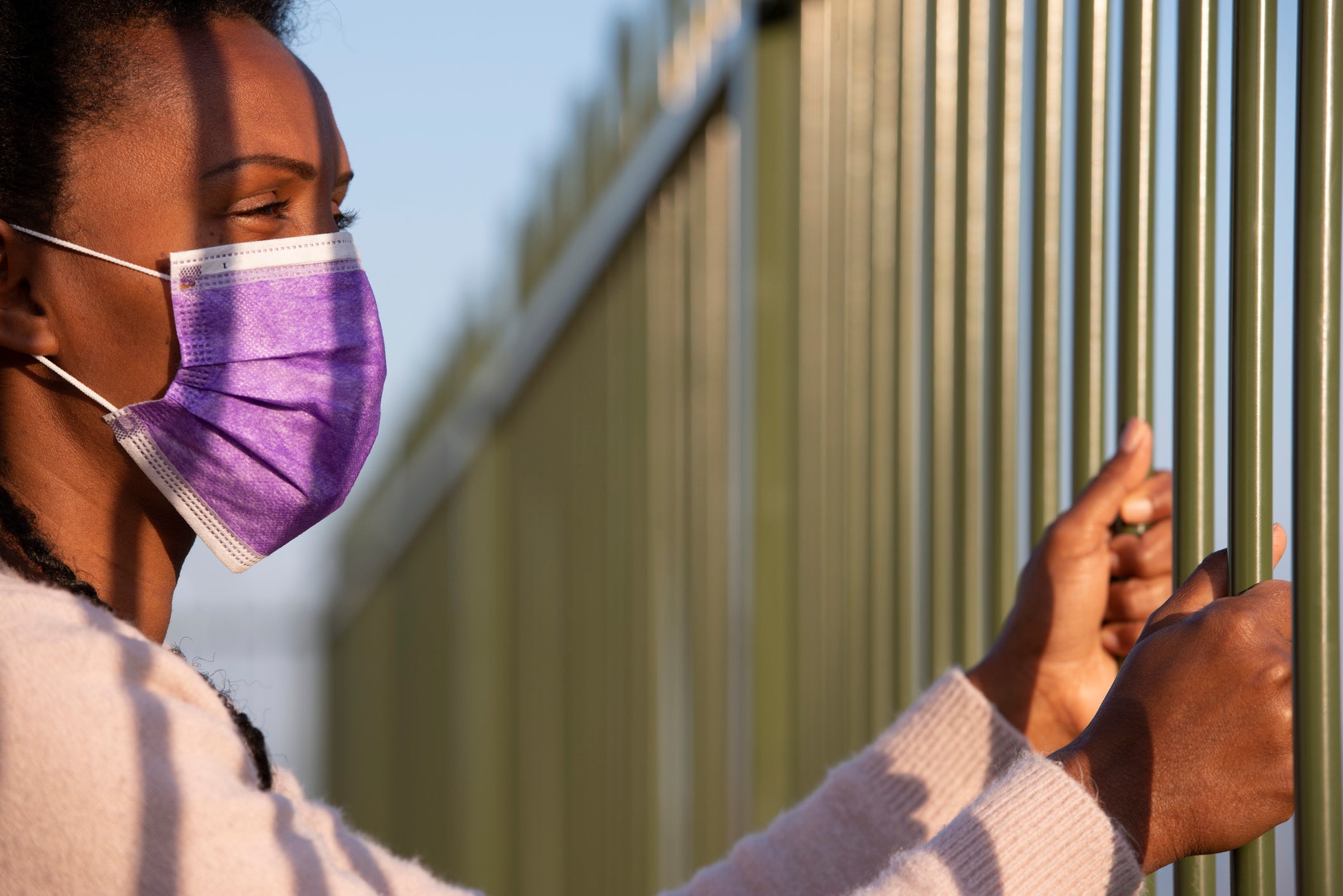
Tammara took a risk just picking up the receiver when she called from inside a New York prison. She tried to clean it first, but all she had was a rag.
Staying close to her three precious children is what keeps her—and them—breathing. And so, she takes the risk like 150,000 other mothers in our nation’s prisons and jails. Many of them are Black or Brown, and most of them are impoverished. And as recent research shows, most of them are also doing time for offenses that people who are resourced and white are rarely prosecuted and incarcerated for.
Communication with loved ones interrupts the toxicity of prisons and jails. It also helps strengthen the relationships people need to be successful as our neighbors after release. Isolation, on the other hand, torments the human spirit and can move anyone to acts of desperation, especially under today’s extreme conditions. Like us, people behind bars need to talk to their children, their spouses, their mothers—those who keep us going.
Now, Mother’s Day is here. And for Black women, whose history has been punctured by vulgar state policies that took their children, from slavery to police violence to mass incarceration, risking their lives to stay close to their babies is a painful, yet recognizable reality. COVID-19 has already needlessly claimed 295 lives in our nation’s prisons and jails. Every sentence right now might be a death sentence.
And the most horrific irony? They and their families must pay to take that risk as prison telecom corporations charge families as much as $25 for a simple 15-minute phone call. Video conferencing, new to many facilities, is often more expensive. And e-mail, a dated technology free on the outside, has only recently started to make its way inside and also comes at a cost.
One in three families goes into debt trying to stay in touch with an incarcerated loved one, and 87 percent of those carrying the financial burden are women, disproportionately women of color. As my friend Diane told me when her son was incarcerated in Connecticut, she’d rather let her electric bill go unpaid than not talk to him. She said, “I can still hear his voice in the dark. I know if he’s okay.”
Prison telecom is a $1.3 billion industry dominated by three corporations: Securus, GTL, and ICSolutions. These corporations pay states and counties kickbacks in exchange for monopoly contracts. And behind these corporations are private equity firms with pension, endowment, and foundation investors.
For example, Securus, which has over 40 percent of the market, brings in nearly $700 million annually across its telecom and other business lines. It’s owned by Platinum Equity, a private equity firm run by Tom Gores, also the owner of the Detroit Pistons. And Platinum’s largest investors include New York City’s public pensions and the Pennsylvania public school teachers’ pension.
Together they force families with loved ones behind bars to triage their everyday crises—when a mother learns she has cancer, a wife gets into a car accident, or a son is struggling with homework—deciding which they can afford to share and which they cannot.
But things are worse today. Correctional administrators around the country have suspended visits to mitigate the impact of the outbreak on incarcerated people and staff. Moms like Tammara and Diane are now at the complete mercy of these predatory corporations to stay connected to their children—a grim reality as unemployment competes with Great Depression levels.
Cities and states have started to respond. In New York City and San Francisco, advocates succeeded in passing polices that made all jail phone calls free. Connecticut, Massachusetts, and New York are considering legislation that would do the same across their prisons and jails. In response to the immediate crisis, the Federal Bureau of Prisons made phone calls entirely free. It’s the right thing to do.
The COVID-19 outbreak has reminded us all of the importance of communication. Our current focus on human connection is an opportunity to correct a decades-old wrong and ensure that, now and forever, families won’t have to worry about whether they can afford to tell their loved ones behind bars that they’re still alive.
Bianca Tylek is the Executive Director of Worth Rises, a national non-profit advocacy organization working to dismantle the prison industry and end the exploitation of all those it touches. She’s an attorney, advocate, organizer, and artist.





